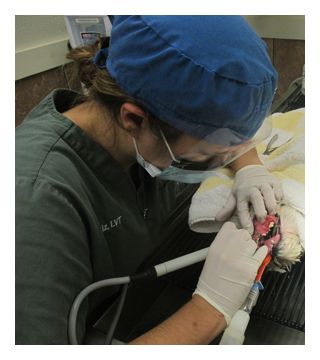

Did you know that oral hygiene in pets plays a critical role in their overall health just like in humans? Unfortunately, many people are not aware of its importance and in fact, most people schedule regular dental cleanings but overlook the same for their pets. Unfortunately, pets experience the same diseases that would affect a human being with poor dental hygiene. From periodontitis to gingivitis, and these diseases make it easier for them to lose their teeth at a tender age. Here are some reasons why your pets should have oral surgery:
Tooth Loss
Most often, when adult pets lose their teeth, it’s due to periodontal diseases. In other cases, the tooth may have been malformed. Over time, the development of these gum diseases leads to serious complications down the road and hence why your pet needs to undergo dental surgery. Your vet will first have to check if it is possible to remove the plaque to help the tissues heal and grow. But if it is quite severe, your pet will be put under anesthesia and your vet may consider slowing the disease by application of antibiotics in the teeth or tooth extraction.
Oral Infections
Even though your pet’s teeth might not fall due to periodontal diseases, it can lead to the filling of bacteria in the open space around their teeth. This infection may manifest as tooth abscess and if it gets worse, it may lead to facial swelling and deformity. So if you notice your pet has lost its appetite, has sudden shyness, and unusual drooling, you should consider taking it to your vet for dental surgery.
Bad Breath
The most common cause of bad breath in pets is a buildup of bacteria on the teeth. Damage to the ligaments will allow bacteria to enter into the bloodstream of your pet leading to a more fatal illness. This is why it is important to see your vet as soon as possible when you realize your pet has bad breath because it might just be one of the signs of the fatal illness.
Misaligned Teeth
Misaligned teeth in the upper or lower part of your pet’s jaw may affect their eating habits. This is because the misaligned teeth often rub against the soft tissues in the mouth of your pet creating sores and if you notice this, it is important to seek the help of your vet. In most cases, the vet will opt to extract the crooked teeth through dental surgery.
Broken Teeth
Broken teeth are very common in pets and they are often a result of trauma, either because they were hit by a car or a rock or through chewing hard objects. Broken teeth can leave a pulp exposed to bacteria and lead to infection in the mouth and throughout the whole body of your pet. Unfortunately, very few pets will show discomfort as they are conditioned to mask their pain even when they are suffering throughout their whole system. This is why it is important to take your pet to your vet for a regular checkup so that in case there’s a broken tooth, your vet can perform dental surgery on your pet.
If you need more information on pet dental health and surgery, please visit The Animal Hospital in Slingerlands, NY, or reach out to us today at (843) 494-5250 to schedule an appointment.








